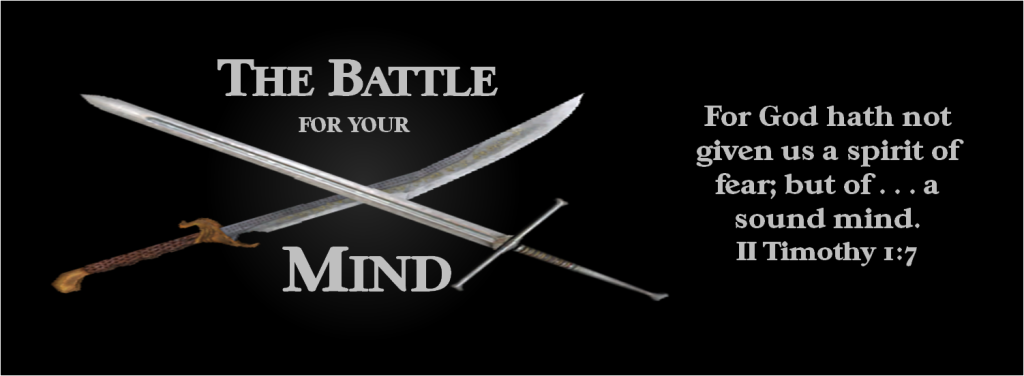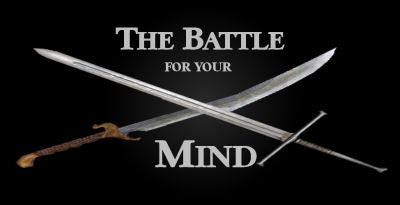This is the tenth post in the “Battle for Your Mind” series. Click here to view the previous post.

THE BATTLE FOR YOUR HABITS
BREAKING THE BONDAGE TO HABITUAL SINS – PART I
Of all the sounds in the world, the one that I hate the most is my alarm clock.
Some of you are morning people and when the alarm goes off (if it even needs to), you bound out of bed with a cheery, “Good morning, world!”
Well, let me just let you in on a little secret. Not everyone is like that. A greater percentage of the world remains incoherent until the third or fourth snooze alarm goes off.
Have you ever woke up late only to realize that you have hit the snooze button or turned off your alarm without even knowing it? Admit it. It has happened to all of us. How is that even possible?
You can do it in your sleep because it is a habit. When the alarm goes off in the morning, you don’t have to think about what to do. Automatically, your brain tells your arm to slam your hand down on the clock, hoping that by chance you will hit the button that temporarily squelches the infuriating racket. You don’t have to wake up and say “Ok, let’s see…I need to raise my arm, reach out toward the nightstand, and gently press the correct button.” Nope, you just do it and often don’t even know that you have done it.
After prevailing in the “Battle of the Snooze,” if it were not for habit, your day would only become more difficult. You would have to instruct yourself to open your eyes. Then you would have to struggle with remembering to get your legs over the side of the bed.
You would be worn out even before you can even drag yourself into the bathroom to brush your teeth!
Good thing we have habits.
God has programmed us to think habitually because it makes life run much more smoothly. That is why you can drive a car with ease. Habit is how you can learn to play a piano or scratch your head.
Habits control a great percentage of our lives. With habits, we can take part in all sorts of complex activities without thinking about them.
We all have habits. And we are in bondage to those habits. We will carry them out unless we make a conscious decision to do something else. It is obviously very dangerous, then, when our habits are sinful.
One day Jesus was talking with some people who liked to think that they were completely free. However, Jesus knew that they were in bondage to sinful habits.
Then said Jesus to those Jews which believed on him, If ye continue in my word, then are ye my disciples indeed; And ye shall know the truth, and the truth shall make you free. They answered him, We be Abraham’s seed, and were never in bondage to any man: how sayest thou, Ye shall be made free? Jesus answered them, Verily, verily, I say unto you, Whosoever committeth sin is the servant of sin. And the servant abideth not in the house for ever: but the Son abideth ever. If the Son therefore shall make you free, ye shall be free indeed. (John 8:31-36)
These folks thought they were free and could do whatever they wanted (which happened to be sin), but Jesus pointed out that they were actually in bondage to the sin. It wouldn’t have been easy to get out.
While you may think of yourself as free, is it possible that you could have some sinful habit that has you in the chains of bondage? If so, how do you get free?
We’ll look at three steps that will help you in this process.
Step 1: Realize what your habits are
In other words, evaluate yourself. What kind of habitual sins do you have?
Many sins can become addicting. You know you should stop and you want to stop, but you keep being driven back for more.
It may not even be what you might call a “big” sin. Maybe it’s just a pattern of discontentment, gossiping, or unfaithfulness. Most likely, there is something in your life that does not glorify God.
Peter, warning about false teachers who deliver a “do whatever you want” message, revealed that they are themselves “servants of corruption” because “for of whom a man is overcome, of the same is he bought into bondage” (II Peter 2:19).
In other words, you are a slave to whatever has gained control of you.
What has control of you? You may not even realize it. That is why it is important to evaluate yourself.
A habit may be an action that you do without thought. Or It may be a pattern of thinking.
You can pinpoint your thinking habits by the first thing that pops into your mind. Is it a response of love or selfishness? If selfishness, you are in bondage to self-love.
If you honestly evaluate yourself, you will probably find that you have developed some sinful habits—either actions or patterns of thinking. Once you determine what they are, how do you get rid of them?
Step 2: Remember who you are in Christ
If we are going to win the battle for the mind, we need to realize who we are in Christ.
According to Colossians 3:9-10, we have “put off the old man” and “put on the new man.” So why do we keep acting like the old man?
As a Christian, God has given you the ability to overcome sin—even sin that has become habitual.
God works in us “to will and to do” (Philippians 2:13) of His good pleasure. We want to do what is right, but we still struggle with the “do” part. However, because of who we are in Christ, we can beat our sinful habits!
Let’s recap where we are. We know that we have developed sinful habits that we want to remove. We have evaluated ourselves to find out what they are. Then we have reminded ourselves that we do not have to sin, because Christ has freed us from bondage to sin.
So, what comes next? The next step is to learn to replace the desire to do your sinful habits with something that is right. That is what we will cover in the next section.
Click here to view the next section, The Battle for Your Habits: Breaking the Bondage to Habitual Sins, Part II.

